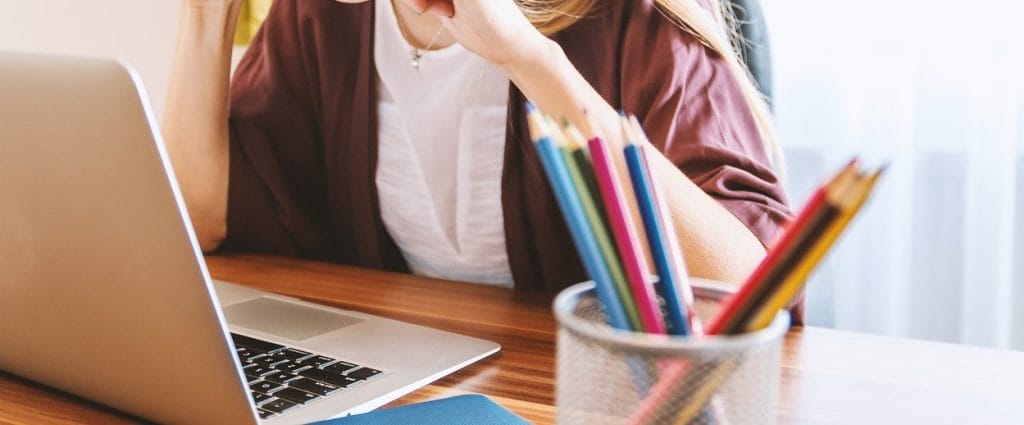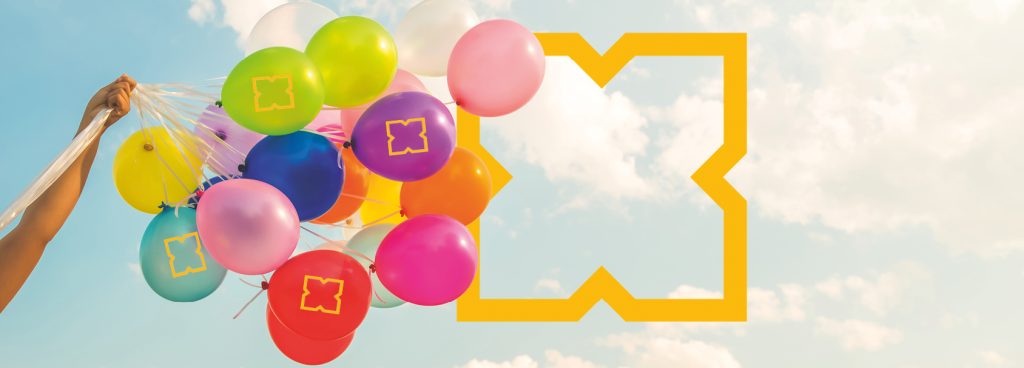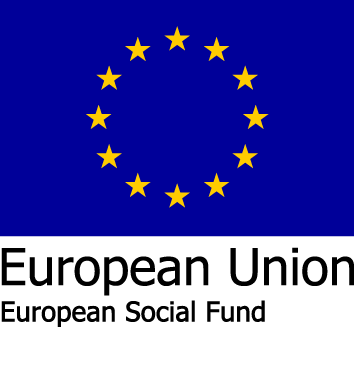
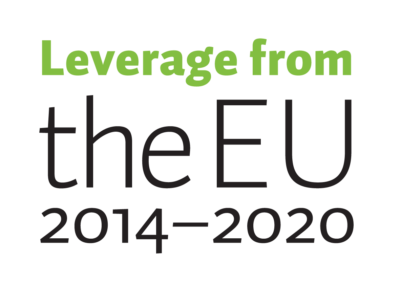

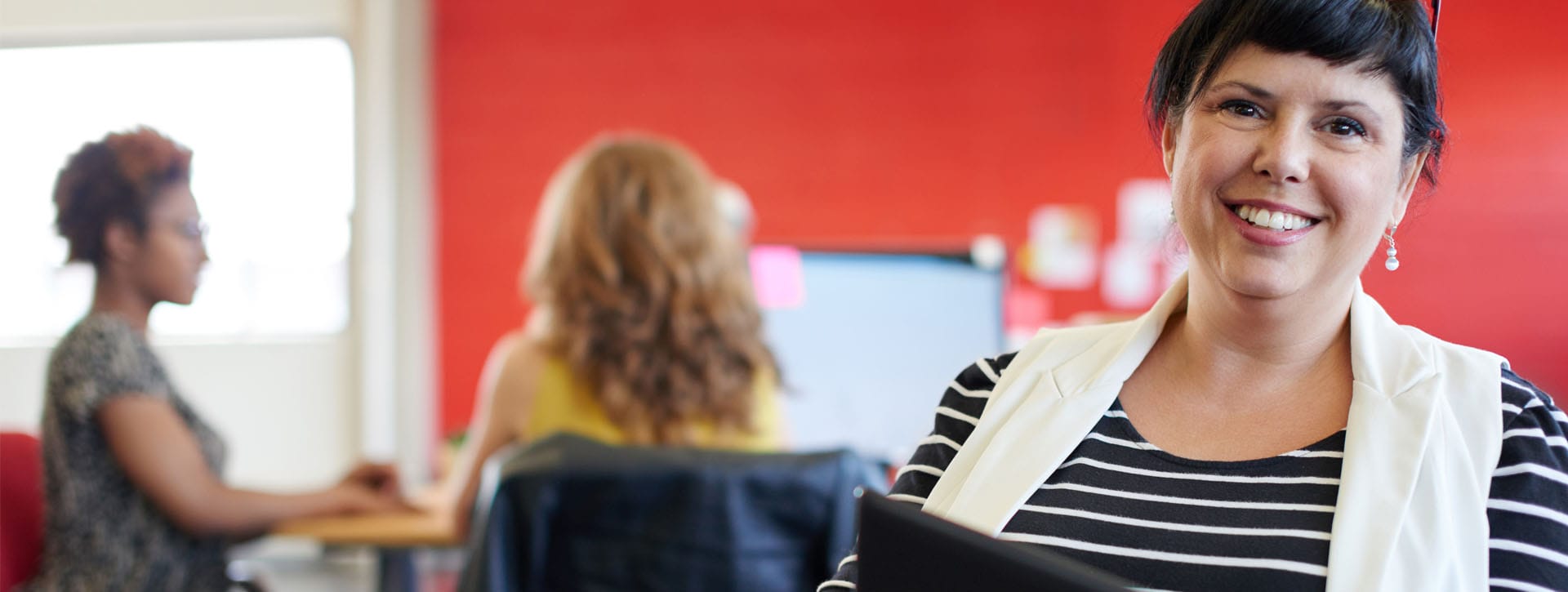
TIME4HELP Finland
Peer support – know-how and skills – networking – motivation
The project is finished.
The main goal of the project is to develop, in a transnational partnership, test and implement new solutions to support mature women, aged 45-65, by balancing access to various forms of lifelong learning.
Together with project partners the transnational cooperation concentrates to joint development of new solutions as well as exchange of information and experiences.
From this page you will find the material produced in English. More information and material in Finnish you will find from this link.
Webinars
Co-responsibility, key to overcome inequalities in the world of work
Webinar on 16th April 2021 at 13.00-14.15 (CET)
Blogs in english
Care responsibilities affect women’s working lives
Covid pandemic has been challenging for families with children. According to research if care duties were divided more evenly between men and women it would increase the total income for the family and fulfill better professional wishes of both parents.
The Spanish partner of Time4Help project, Action Against Hunger, prepared a webinar on how care responsibilities affect women´s working lives. In Spain almost a third of women participating in Action Against Hunger activities feel that pandemic has limited their job opportunities.
Leticia López who has managed numerous projects in the third sector and has now worked for four years with immigrant women stated in her presentation that even if women have managed to get work they have been paid less than men.
“According to International Labour Organization ILO the highly feminized sectors such as caring for people, tourism, customer service and retail have been directly affected by the pandemic. In the same time the amount of working hours has been reduced”, she says.
It has also been clear that women have started far less start up companies than men.
“The amount of informal employment has increased. For example, in Basque country eight of ten people who work caring for the elderly in nursing homes are women and their salaries are not high. In addition, they care for their families which does not leave them time or energy for starting companies.”
She feels that there is now need for a cultural change.
“There is now a crisis of care.” We need to make both men and women see the benefits of co-responsibility in the society and families. Change is needed in social structures, organisations, companies and it is not something that can be done by individuals only.”
Masculinity can be a risk factor
Bakea Alonso from Cepaim Foundation has been working for the past 3-4 years for NEO project with topics related to co-responsibility and masculinity. According to her experiences women continue to see their opportunities limited if their male partners are not co-responsible for the tasks related to care.
“In order to change the current situation it is essential to also work with men. Interventions directed only at women have long been insufficient for the objective of equality. European-level policies promote gender equality in labour market but gender inequality is a relational matter. Work with women has to be accompanied by work with men.”
She emphasized that masculinity is a social and cultural construction. In the 1990s the terms like pro-feminist men, new masculinities and reflective masculinities were introduced.
“Gender is not a synonym for women. Men have also gender. In addition, both men and women can change. In fact, many men are now in a box that determines their behaviour about how to be a man.”
In global context, the role of men and boys was addressed by UN World Summit on Social Development in Cairo and at Platform for Action in Beijing in 1995 in order to encourage men to participate fully in all actions towards gender equality. This work continued during Finland´s EU Presidency in 2006 and European Union has emphasized these issues in its roadmaps and strategies for gender equality for 2006-2025.
“Naming men as driving forces and target groups in gender equality policies is a first important step. Including men´s perspectives in gender equality discourses and structures is quite limited. Gender stereotypes and patriarchy can also affect negatively men and boys. Masculinity can be seen as a risk factor because men have, for example, more drug problems, end in prison more often and get into accidents more often than women. Action is needed to support men to improve the role of women.”
Women are responsible for mental care work
Raquel Santos currently works for Cepaim Foundation with projects related to equality and non-discrimination. She wants to remind that women get also most of the mental burden of care work. This means that they are responsible mostly for the social reproduction (care) and sustainability of lives in their households and the community.
“Women consider mental and emotional tasks as their responsibility. This mental and emotional care work is mostly invisible. Mental care work becomes a burden especially when important changes occur in the family unit, for example, when there is migration process going on, unemployment, income losses, Covid-19 and similar going on. These cause obstacles for women to find and keep work in the labour market. However, men take over more care work and responsibility when women are not present. Also when men talk about mental work, they tend to talk more about self-care.”
NEO project has summarized tips for organisations for creating equality strategies. It has also developed models for organising workshops for unemployed men. The long-term aim is to prepare a guideline for masculinities and unemployment based on research and make a short documentary film about the topic.
Time4Help Project content manager Beata Pachnowska from Dobre Kadry, Poland, commented the presentations and presented a report describing the Time4Help model of support for mature women in the context of research results.
The Finnish partner, Xamk, will prepare the next Time4Help webinar after summer. In addition, the Finnish partner is facilitating webinars in Finnish. In late April the topic of the webinar in Finnish was how to cope in modern working life and share one´s time in a wise way.
The webinar was a part of the Time4Help Finland: Service Business, Women Entrepreneurs and Leaders project which is implemented by Xamk and co-financed by the European Social Fund and the South Savo Centre for Economic Development, Transport and the Environment. The Time4Help project is implemented in an international collaboration with Dobre Kadry, Fundación Acción Contra El Hambre and Odisee University College.
Text: Päivi Kapiainen-Heiskanen
For more information:
In Finnish: https://www.xamk.fi/hanke/time4help-suomi-palvelukehittaminen-naisjohtajuus-yrittajyys/
In Polish: http://dobrekadry.pl/projekty/nowe-trendy-w-zarzadzaniu/
In Spanish: https://www.accioncontraelhambre.org/
In Flamish (Belgian): https://www.kcgezinswetenschappen.be/nl/nieuws/de-sandwichcoach-combinatiestrategieen-bij-de-sandwichgeneratie
After retiring Mikkeli-based journalist and culture actor Seija Lipsanen started a company of her own and opened a cafe at former main building of Otava agricultural school farm. Pandemic regulations forced her to close down the cafe but Time4Help peer group gave energy not to give up entirely.
While living in Otava Seija Lipsanen had always admired the almost 120-year old jugend building located in the vast park area of the former agricultural school. Finally she gained her courage and rented the huge old venue downstairs and moved with her family to live in the rooms upstairs. She started to organize all kinds of cultural events and rented the venues for associations and private customers for celebrations, meetings and educational purposes.
She decided to join the Time4Help coaching programme because she was interested in finding tools for coping as a sole entrepreneur. The group got started just before the corona virus pandemic caused a major crisis in the event and cultural sector.
It was important to share thoughts about coping as a sole entrepreneur
For years Seija Lipsanen got her livelihood from working as a journalist and doing layouts for print media. These experiences she could benefit from when marketing the services of Valkea talo (White House). Because there was no separate marketing budget available she used social media channels in every possible way.
For the year 2020 she had ideas for many kinds of events and customers had started to find her services. Corona pandemic, however, surprised her totally in the spring and she had to cancel all events for the latter part of the year. In the same time it made her think whether it would be possible to continue with her business concept at all. At that point Time4Help provided her well needed support.
The peer group gave me strength to cope during corona pandemic
Pandemic made Lipsanen to change the opening hours of the cafe from regular hours to a open upon request format. She found a new customer group in people who organize events for their own families. For example, the number of confirmation parties and memorial services organized in her venues increased.
In addition, she has organized instructed hobby courses for small groups, for example, for learning new handicraft skills or dances. Time4Help peer group helped Lipsanen to see how she could develop her services and in the same time find new target groups.
This is a perfect place for events that improve the quality of working life
Time4Help small group members have also started joint projects. For example, artist Anne Mäkeläinen held her wooden art exhibition at Kallioniemi summer restaurant and her Astuvansalmi Amazon group performed at an exclusive dinner event at a floating fleet close to the Astuvansalmi rock paintings. Seija Lipsanen believes that there will be new forms of co-operation in the course of time.
There are lots of opportunities in our group.
She values highly the concept of Time4Help coaching groups that participants get to visit each other´s venues for a day which gives them an opportunity to get to know other woman entrepreneurs, their daily life and challenges they face more in depth.
We saw on the spot how things are done.
Seija Lipsanen thinks that a Time4Help small group could be of help for also handicraft artisans who work alone.
They need help with many issues.
Text, pictures and video clips: Päivi Kapiainen-Heiskanen
After Finnish farmers Leena Valkonen and her husband Esko gave up dairy farm in 2008 in Ristiina, Mikkeli in Lakeland Finland, they started to offer bed and breakfast accommodation at their home farm in summertime and build ecological log cabins for holiday-makers to rent.
Over the years, Leena Valkonen´s working week and tasks have changed totally. She joined the Time4Help peer group coaching to get tools for her own time management.
Time4Help offers 45-65-year-old Finnish woman entrepreneurs and professionals a chance to form small peer groups in order to tackle common challenges. Project manager Kaija Villman will then find experts to tailor them coaching according to their wishes.
Leena Valkonen first heard about Time4Help project from an old acquintance Ristiina-based Anne Mäkeläinen who is specialized in creating art and cultural concepts inspired by Astuvansalmi rock paintings known to be among largest in Scandinavia. Having attended several projects, Valkonen had realized that colleagues who joined the Time4Help peer group shared an interest in time management issues.
It is good to discuss things with colleagues.
”We managed to gain mutual confidence when we started with sharing each other things about our lives and let others comment. There was talk about challenges that sole entrepreneurs face that is to say how much can one person expect to achieve alone. How to do marketing? And how to cope with challenges?”
It gave me energy and helped to cope.
From a dairy farmer to digital expert
In recent years, one of the main challenges for Leena Valkonen has been providing services to customers using digital platforms. In practice that means marketing on digital platforms, creating content for social media and communicating with customers online.
”For some people working on digital channels can be natural. For me it has been a tough challenge. I have tried to hang on and I have been looking for help from various projects. Earlier there was no need for me to sell dairy products myself but now I should be interactive in social media all the time. There are many digital channels and one should always be creating some new ways to interact there.”
Valkonens update Facebook and Instagram accounts. In addition, they have a web site and use social media for marketing purposes.
”Today I should be a social media personality, marketing manager, bookkeeper, cleaner and customer service person. A multitasker. Luckily, we can share maintenance tasks together with my husband.”
Digitalization is a hard challenge.
In order to cope better with their work load, Valkonens have shortened the reception time for arriving customers by one hour. Earlier customers were expected to arrive by nine in the evening but now they are expected to register by eight.
”That way we were able to shorten our working time by seven hours weekly and we now get to go to the sauna by the lake in time. Going to the sauna is one of the things that helps us cope. In the wintertime we have started to play billiards for an hour while heating the sauna. In the autumn and winter we travel either together or by separately. In the winter it is easier to relax and I get to sleep longer then. At least eight hours.”
In the summer it is common that customers visit the farm to see chicken and sheep at the yard. In the wintertime there are long-term customers who are usually not served breakfast.
”We are used to this kind of life now and to the fact that customers come and go. In the wintertime it is not that crowded but in the summertime we need to be here all day long. However, usually we ask customers to call and let us know when they are coming.”
Valkonens rent bed linen to their customers and offer a possibility to clean the cabins upon departure for an additional fee. A laundry service nearby takes care of washing bed linen but Leena Valkonen takes care of cleaning the cabins herself.
No compromises with sustainibility
Valkonens were the first in their region to receive Green Key and STF certificates that prove that sustainibility is taken into account in everything they do. Cabins have been built of logs from local forests, termal heating warms the cabins, ecologically produced electricity is being used, waste is being sorted and composted. Valkonens have designed biking routes suitable for electrical bikes. They also hire electical boat motors for their customers.
Help is needed for counting carbon compensation.
”We also take social responsibility seriously. There is no discrimination here and we are member in the Finnish Rainbow-friendly community.”
For Valkonens IT is an ongoing process to try and improve their services. The Time4Help coach Pekka Krook helped them to join the Sauna Finland network because Valkonens have many kinds of saunas, also an original smoke sauna.
You always find new things from projects.
”It would be great to combine going to the sauna and herbs in some new way. There could be, for example, self-made herb selections for foot baths and honey used for peeling skin. Another Time4Help participant Seija Lipsanen has knowledge that I could learn from. We could, for example, offer groups of women relaxation days together. This was one of the ideas that I got during Time4Help coaching days.”
In the same coaching group there was also Irina Ravantti who has developed boat cruises, accommodation and catering services with her husband at Summer Restaurant Kallioniemi by Lake Saimaa in Ristiina. Valkonens have included Kallioniemi along their bike routes and recommend its food services and boat cruises to Astuvansalmi rock paintings.
Time4Help encouraged for new kinds of co-operation.
In addition to new networks and joint marketing, Leena Valkonen is happy for the empowering energy that Time4Help created between participants.
”Each of the meetings was really empowering. The coaches gave us ideas of how to make different things happen. The peer group gave energy and helped to cope.”
Text, photo and videos: Päivi Kapiainen-Heiskanen
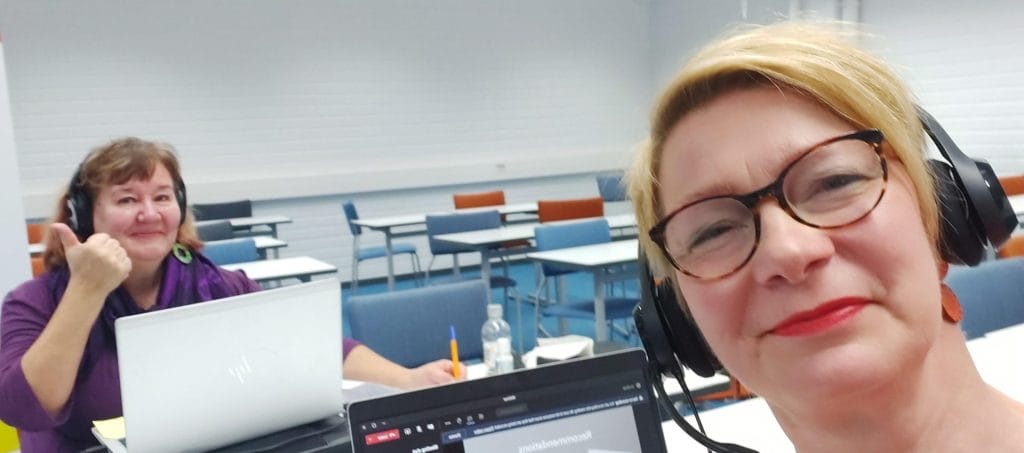
Teleworking during Covid-19 has offered people new opportunities for integrating work and home. There are also many obstacles that young families and sandwich generation are experiencing. In addition, conditions and traditions for teleworking are still quite different in European countries.
Time4Help project organized a free webinar in mid-November for sharing experiences and research results concerning integrating work and home in the Covid-19 times in Belgium, Poland, Spain and Finland. The webinar was chaired by the Finnish partner South-Eastern Finland University of Applied Sciences Small Business Center.
Challenging times for young families and sandwich generation
Belgian researcher and lecturer Miet Timmers working for University College Odisee and Center for Family Studies in Flanders has been doing research on phenomena related to family issues in Covid-19 times. Timmers started research in April 2020 to find out what consequences the first lockdown period had had. Research was done from the perspectives of an individual, gender, generation and working places.
While working from home in pre-corona times was seen as a way to facilitate the combination of family and work, during the corona crisis teleworkers experienced more conflict between family and work on several factors than non-teleworkers. People teleworking during the first lockdown period experienced that their work was constantly interrupted, they felt that it was harder for them to concentrate, they believed telework had effects on their everyday family functions and more conflicts were occurring between work and family life. 36,6 % of women and 26,4 % of the men feel emotionally exhausted after (home) work. Especially parents of toddlers (39%) and parents of children under the age of 11 experienced emotional exhaustion. They worried about issues related to work also during their spare time, they felt too tired to do household work and they were afraid that work was taking too much time away from their family time. ”When there are children under 11 years in the family, women feel more guilt when teleworking home than men do”, Timmers summons up.
Not only the young families experienced difficult times. Generational differences were reinforced during the COVID-19 period. Older age groups had less difficulty in reconciling family and work and in most cases have better mental well-being than young people. Still, research from Anglo-Saxon countries showed that some 27% of ‘sandwich carers’ showed symptoms of mental ill-health while caring for both sick, disabled or older relatives and children. Approximately 1/3 of the sandwich generation is said to have it mentally very difficult and also to be very worried about finances. The research shows that the main concerns are the well-being of the oldest generation to be cared for and a lack of physical contact with the grandchildren. For many people of the sandwich generation, teleworking was also a greater challenge than for the younger generations. Their digital skills had to be improved in a short period of time and the learning curve was steep.
“The sandwich generation is facing a situation where older generations stay longer at home and younger generations stay longer in the parental nest and they have to work to a higher age. The positive phenomenon is that young grandparents want to play a role in their grandchildren´s lives.”
According to researchers, employers could ease those tensions if supervisors would be willing to listen to people teleworking and if employees could share freely their thoughts of their current family situation. In addition, it is essential to find balance between the needs of an individual, the team and the organization.
Differences on European level
In Europe telework has been most common in Finland, the Netherlands, Luxemburg and Belgium. People face most obstacles for teleworking in Romania, Hungary, Croatia, Bulgaria, Greece, Poland and Spain.
The Belgian researchers compared circumstances in countries taking part in Time4Help project. In general, people felt that teleworking becomes easier if they can work in a flexible and independent way.
According to statistics this is typical for the Finnish working life. The Polish people feel that their working life is hierarchic, work time is intense and there is little flexibility. In Spain people felt that lacking social interaction hinders their best performance at work.
Researcher Beata Pachnowska from the Polish research center Dobre Kadry says that in her home country working home is an option only for 47% of SMEs, part of teleworkers are well prepared but in some cases the lack of equipment such as computers and laptops makes teleworking difficult. People are sharing their home computers for working purposes with other family members and there are difficulties with security issues. In addition, there are not spaces for working available at homes.
”However, people teleworking have experienced that there has been a better balance between home and work, time has been spared from commuting and it has been possible to combine work and taking care of children”, Pachnowska says. The Polish Time4Help project concentrates in helping vulnerable groups, such as women over 50 years and vulnerable groups with challenges in working life. The European Time4Help network is coordinated by Dobre Kadry based in Wroclaw.
Since 2013 the Spanish NGO Fundación Acción Contra el Hambre has focused on fighting against exclusion with offering opportunities for employment and entrepreneurship for vulnerable people. During Covid-19 times the NGO has increased personal and also psychological support online for their target group as well as donated cash. The Madrid-based NGO contacts people half a year after they have left the support programme to find out how they are doing.
”During Covid-19 almost one third of the women felt that helping others had diminished their working capacity when the same figure for men was 15 %. In addition, 44 % of mothers thought that helping others limited their chances to work. It is worrying that every fifth mother says that they have no access to electronic tools that they would need”, Alicia García-Madrid Colado summarizes.
Finland has been an exception to the other countries taking part in Time4Help project. Finns started working at homes quickly and trust in government during the corona crisis has been high. According to research Finnish women like teleworking more than men and half of Finns would like to telework when it is possible.
”Of course there is talk about corona stress that includes financial worries, loneliness and coping with little children. However, a research by Finnish Institute of Occupational Health this spring stated that long-term stress has decreased and parents of little children feel that their work performance has improved. Almost half of those who did more teleworking during the corona spring felt that they had had a chance to make more decisions and work more independently. Many also think that they have learnt new working methods”, researcher Mervi Rajahonka from Xamk Small Business Center says.
The University of Turku completed a research on Finnish families with small children and according to the results conflicts related to household tasks have increased. Another study by the University of Jyväskylä stated that over 70 % felt that corona crisis had had positive effects on the relations between parents and children even if in the same time over half regarded the corona situation hopeless. In Finland the corona situation seems to have had both positive and negative effects on families and companies.
Time4Help project in Finland concentrates on tackling the challenges that women in the age group 45-65 years face by empowering small groups of woman entrepreneurs and professionals who wish to network and work together. The Finnish project is coordinated by South-Eastern Finland University of Applied Sciences Small Business Center.
Tips for teleworking better
Miet Timmers recommends that people teleworking could benefit if they could manage their own expectations, create a dedicated workspace for themselves at home, take breaks on a regular basis and find a way to establish transition times to switch from work mode to home mode. It is also important that the person teleworking overcommunicates what he or she needs to make teleworking successful at home. It is also important to schedule time for family and social life.
”Otherwise there is a risk that the boundaries between home and work disappear, people start to isolate socially and family members become co-workers.”
Timmers emphasizes that trust is needed to make teleworking successful.
”The person teleworking needs to rely on the support from family and supervisor. Teleworking is here to stay. People have already developed models for balancing and integrating teleworking and family life. We are starting to talk about a so called lockdown generation.”
Webinar on sandwich generation in January
There will be another free webinar organized by Time4Help project coordinator and Polish partner institution Dobre Kadry with the focus on sandwich generation issues in January.
Text: Päivi Kapiainen-Heiskanen
Photo is from the Time4Help webinar studio in South-Eastern Finland University of Applied Sciences Small Business Center. Webinar host Päivi Kapiainen-Heiskanen on the left, project manager Kaija Villman on the right. Photo: Kaija Villman
Over the years, Xamk has been coaching woman entrepreneurs and companies specialized in creative industries. Time4Help project offers tailor-made coaching for small peer groups that have been organized by woman entrepreneurs themselves.
Astuvansalmi rock paintings are regarded as one of the largest ones in Scandinavia. The paintings located in Ristiina, Mikkeli, are known for a hunting figure that is believed to portrait a hunting female figure holding a spear. Ristiina-based artist Anne Mäkeläinen got inspired by the figure in the beginning of the 1990s and developed an Astuvansalmi Amazon brand that combines an interartistic performance, art exhibition and jewellery art.
As a sole entrepreneur she has found herself support from Xamk international projects related to creative industries. She has attended projects coordinated by Kaija Villman and coached by Pekka Krook.
When Villman started Time4Help project, Mäkeläinen gathered together a group of women entrepreneurs and professionals who would benefit from joint couching for developing their travel- and culture-related products and services. Currently, Mäkeläinen is preparing an Astuvansalmi Amazon installation to be revealed at the end of 2021 close to Ristiina Rantatori by Lake Saimaa.
“It has been tiring and hard to try and apply for funding for art projects. Therefore, getting coaching and mental support are really important for coping. Kaija and Pekka have been very important people for me. So I gathered a Time4Help peer group to find out if we could develop experiental products together.”
Kallioniemi gets inspiration from history
Finnish professor Emil Setälä spent summers in Kallioniemi villa in Ristiina along with his wife Helmi Krohn, a writer and translator. Among other things, professor Setälä is known for the fact that he was only 15 years old when he wrote his first Finnish grammar book.
Otto and Irina Ravantti have been developing services for travelers in Kallioniemi for the past four years. The main building built in 1896 serves today as a restaurant that offers meals made of locally produced food ingredients. You can also find services for people coming by their own boats or attending boat trips organized by Kallioniemi. In addition, in the summer 2020 a small information desk called Rock Art Center Astuva was opened in a log building,
Irina Ravantti who worked earlier as a sole entrepreneur joined the Time4Help network after realizing that if she would always only count on the same support network she might miss some new perspectives.
“However, I thought that if the meetings would turn out to be just vain talk I would not remain. Previously I knew Anne´s art but other women and their roles in developing services for travelers were all new to me. Pekka Krook realized from his own experiences what I had gone through as a sole entrepreneur so it was possible to set up personal goals for myself with his help.”
Time4Help was personally very important at that point.
As a fruit from the Time4Help co-operation between Mäkeläinen and Ravanttis an art exhibition was opened in the villa restaurant and jewellery art was for sale at Rock Art Center Astuva in summer 2020. When Ravanttis organized at the end of the summer a fancy dinner at a floating fleet close to the rock paintings, the guests were greeted with Astuvansalmi Amazon performance organized by Mäkeläinen.
“This kind of co-operation would not have happened with Anne without our Time4Help group. We had time to learn to know each other during coaching sessions, we could speak openly and create confidence upon which we can build new things”, Irina says.
Astuvansalmi Amazons found their way to Kallioniemi
Irina Ravantti receives guests to Kallioniemi villa dressed in clothing that are a copy of the ones that Helmi Krohn used in her time. It is a matter of heart for her that no guest leaves Kallioniemi without hearing about how Helmi and Emil lived there and how important a role Kallioniemi had when Finland was in the process of becoming an independent state over one hundred years ago.
“Kallioniemi has been the cradle for the Finnish society, poetry, literature, music and culture in many ways. Emil Setälä, for example, signed the declaration of independence here in Kallioniemi. I usually tell various customer groups a little different stories. For school children I usually emphasize the meaning of respecting nature. Emil Setälä received an arms from Denmark stating that you need to work for important issues with all your strength even if the end result is insecure. That is a good motto.”
Corona spring 2020 brought insecurity also for Ravanttis. Finally, they decided that there is no alternative but to continue developing services.
Rock paintings brought people to Kallioniemi last summer.
“This is now the first autumn that there is not a lump in our throats and there is a little nest egg for next summer. We would also like to develop accommodation possibilities and expand boat tour services.”
Hopefully the meaning of rock paintings for tourism is understood here.
Networks give you strength to develop new ideas
Time4Help project offers each peer group six meetings during which the group visits each other´s companies. So Irina Ravantti´s group visited Valkea talo in Otava, Kaidan Kiho cabins in Ristiina and Kallioniemi. Time4Help groups also scan if companies would have ideas they could develop further in the form of new projects.
“We tried to find joint and concrete ideas and I believe that those ideas will mature with time.”
Support your local
A Time4Help peer group is formed when 5-6 women entrepreneurs and professionals decide to develop themselves and their services together. In the groups there are 45+ women who are entrepreneurs or professionals occupied in some other field.
“Groups can meet either online or face-to-face when possible. You only need a common, joint topic and interest for sharing and working together. The common goal can be, for example, a will to act and provide services together in your network. Or each participant can have a personal goal related to coping with work or promoting one´s career. When the topic is chosen, content for your coaching programme will be tailor-made and timetables for about five get-togethers will be chosen as well as a couch for facilitating workshops”, project manager Kaija Villman explains.
Over the years she has seen how working together and sharing thoughts can evolve in the way that it is easy to develop new services and products together.
“Also new skills like understanding the concept of service design can open new perspectives to entrepreneurship and work.”
Interviews for this article were made in early autumn 2020 by Päivi Kapiainen-Heiskanen who also took the photos and recorded video clips.
TIME4HELP Finland
Info
Budget
Contact info
Kaija Villman
Project Manager
+358 40 176 4667
firstname.lastname@xamk.fi


